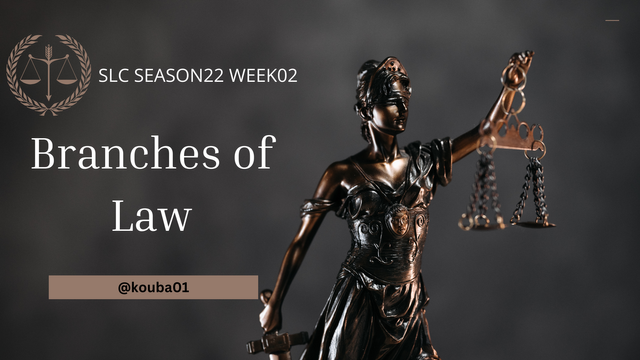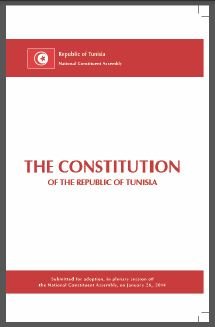SLC22-W2 / Branches of Law.

Part I : According to what was explained in class, according to the law or laws of your country, point out two examples of public law and two examples of private law, and explain why you consider that these rights are part of public law and private law.

For private law, an example is the regulation of rental contracts contained in the Code of Obligations and Contracts, this text belongs to private law because it governs the relationships between two parties, the lessor and the lessee, without direct State intervention, another example is the Commercial Code, which regulates commercial transactions between individuals or companies, illustrating the principles of private law in economic relations.
Regarding the classification of laws in specific branches, the regulation of sales contracts, included in the Code of Obligations and Contracts, belongs to civil law, this classification is justified by the fact that this law regulates the reciprocal obligations between individuals in contractual relations, likewise, the Tunisian Labor Code falls under labor law, because it governs professional relations between employers and employees, while protecting the rights of workers and establishing their obligations, these Examples show how each law finds its place in a specific branch of law depending on its object and objectives.
Part II : Of all the branches of law (explained in class or that you know and has not been explained), which one seems most interesting to you and why.
Among all the branches of law, I find constitutional law particularly fascinating and of crucial importance for the organization of life in society, constitutional law establishes the fundamental bases that govern the State, by defining the distribution of powers between different institutions, the rights and duties of citizens, as well as guarantees of individual and collective freedoms, this branch of law is both the backbone of the legal system and the guarantor of the balance between authority of the state and the protection of citizens' rights.
In Tunisia, constitutional law took on an even more significant dimension with the adoption of the 2014 Constitution, which is the fruit of the political and social transformations which followed the 2011 revolution, this Constitution reflects a strong commitment in favor of human rights, democracy, equality between citizens and the separation of powers, this text introduced innovative principles into the Tunisian context, such as freedom of conscience, gender equality And independence of judicial power, which mark a break with old authoritarian practices.
What makes constitutional law even more interesting is its evolutionary aspect. It is never fixed, but on the contrary, it adapts to political, social and economic contexts, for example, constitutional reforms may be necessary to to meet the needs of society or to correct imbalances observed in the practice of institutions, it is a living branch, in constant interaction with political reality and the expectations of citizens.
Another captivating aspect of constitutional law is its role in protecting freedoms, for example, in Tunisia, the Constitution guarantees fundamental rights such as freedom of speech, freedom of the press, and the right to a fair trial, these guarantees make it possible to limit the abuse of power and to strengthen citizens' confidence in public institutions; constitutional law is not content to be a simple declaration of intentions, it imposes concrete obligations on public authorities and gives citizens the necessary tools to defend their rights.
As a Tunisian, I am particularly touched by the way in which constitutional law has helped shape our democratic transition; the establishment of a Constitutional Court, although still a work in progress, testifies to the ambition to provide the country of a strong mechanism to ensure respect for the Constitution and guarantee that the laws adopted conform to constitutional principles.
Part III : We have all had or lived moments within one of the branches of law. So you must tell us about that experience of your own or someone else's but of which you have full knowledge and can adapt or compare it with one of the types of law explained in class.
I will share a personal experience that I consider to be a clear illustration of labor law, a branch of law explained in class, this situation concerns a relative who had a dispute with his employer regarding the payment of termination benefits. Contract
My relative, who worked in a private company in Tunisia, had signed a fixed-term contract (CDD), upon the expiration of this contract, the employer refused to pay the legal compensation linked to the end of the employment relationship , such as compensation for non-renewal of the contract and the balance of untaken leave days, my relative tried to resolve the problem amicably, but faced with the persistent refusal of the employer, he decided to take the matter before the Inspection of the work, an administrative body that intervenes in this type of dispute.
The Labor Inspectorate organized a conciliation meeting between the two parties, during this meeting, the employer's obligations according to the Tunisian Labor Code were recalled, in particular the articles which provide for the rights of employees to receive their end-of-contract compensation, despite this, no agreement was reached, and the case was brought before the Labor Court.
In court, the evidence was examined, including the employment contract, pay slips and correspondence between the two parties, the judge ultimately ruled in favor of my relative, ordering the employer to pay the compensation due as well as compensation for moral damage caused by the delay in payment.
This legal status falls under labor law because it directly relates to employer-employee relations and is based on specific rules governing these relations, labor law protects the rights of workers, defines the obligations of employers and provides for mechanisms for resolving this problem, labor-related conflicts, and in this specific case, it concerns the application of the rules related to the end of the employment contract and the right of employees to obtain compensation provided for by law.
Thank you very much for reading, it's time to invite my friends @lil.albab, @miftahulrizky, @heriadi to participate in this contest.
Best Regards,
@kouba01


You've got a free upvote from witness fuli.
Peace & Love!
@tipu curate
;) Holisss...
--
This is a manual curation from the @tipU Curation Project.
Upvoted 👌 (Mana: 0/6) Get profit votes with @tipU :)
Muy buen contenido, ☺️ muy nutrida tu explicación, felicidades y éxitos serías un buen defensor.